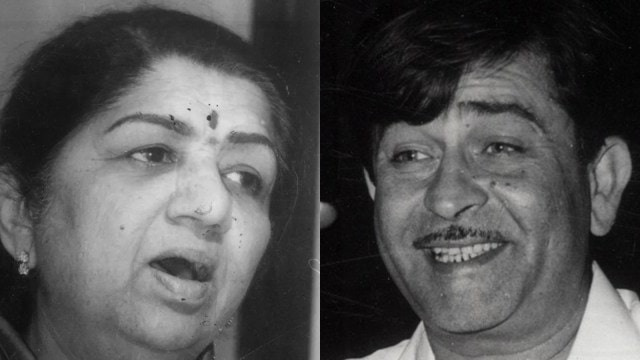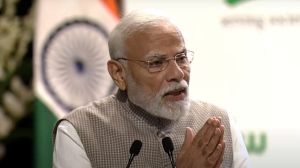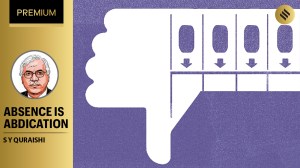Click here to follow Screen Digital on YouTube and stay updated with the latest from the world of cinema.
Angry Lata Mangeshkar demanded royalty from Raj Kapoor after he fired her brother, refused to sing for him: ‘I will sit outside your house till…’
Lata Mangeshkar was upset with Raj Kapoor after he replaced her brother Hridaynath Mangeshkar with Laxmikant Pyarelal for Satyam Shivam Sundaram.
 Lata Mangeshkar and Raj Kapoor first collaborated in 1948.
Lata Mangeshkar and Raj Kapoor first collaborated in 1948. Late singer Lata Mangeshkar is still known as one of the most influential figures in Indian cinema but when she started her film career in the 1940s, Raj Kapoor was one of the first filmmakers who was keen to have her voice in his films. Their association started in 1948 and went on until the end of Raj’s life but they saw their share of ups and downs which included Lata refusing to sing for him, and Raj refusing to pay royalties. Their rift started when Raj requested Lata to get her brother Hridaynath Mangeshkar on board for Satyam Shivam Sundaram but soon after, without Lata’s knowledge, he replaced Hridaynath with Laxmikant Pyarelal.
In the book Raj Kapoor: The One and Only Showman, written by his daughter Ritu Nanda, Lata can be quoted saying, “He wanted my brother Hridaynath Mangeshkar to score the music. I managed to persuade my brother who was not really interested in scoring scores for films.” Renowned singer Mukesh had suggested Hridaynath’s name to Raj and the filmmaker was convinced. Soon after Lata convinced her brother, she left for the US for a tour and there she learnt that Raj had replaced her brother behind her back, and hired Laxmikant Pyarelal.
“It was very embarrassing for me. Hridaynath called me and said that he had accepted the film because of me but the newspapers were writing otherwise. He was offended and embarrassed. I was very angry with Raj ji. On my return, I called him and said ‘Why did you do this? I had persuaded him because you had asked me to’,” she said. Ritu, the author of the book and Raj’s daughter, wrote that this became a bone of contention between the two. “Lata started harassing Raj Kapoor. She started demanding royalty from him for the songs that she would sing in the future, as she did with other producers. She wanted more money and even created delays in recording for him,” she wrote.
To diffuse the tension, Pandit Narendra Sharma, who was a father-like figure for Lata, intervened and convinced her to sing for Satyam Shivam Sundaram as no other voice would do justice to the songs. Lata put forth the condition that if she sings, she would not speak with anyone in the studio. She even asked Laxmikant Pyarelal to ban Raj Kapoor from entering the studio during her recording.
“I sang the song and went straight to the car without talking to anyone. Bobby was being made, I called Raj Kapoor and told him that the singers association had asked the singers to take royalty directly from the producers. He immediately replied ‘Main yahan business karne aaya hoon, royalty baatenein nahi’ (I have come here to do business, not distribute royalty). I replied ‘Aap business karne aaye hain aur main Rani Bagh aayi hun’ (You have come here for business and I have come to the zoo),” Lata recalled.
The tension was at its peak and Raj requested Laxmikant Pyarelal to mediate the so-called cold war between them. Lata rejected his efforts for quite some time but eventually, Raj Kapoor called her and said, “If you refuse to sing for my film, main aapke ghar ke saamne tambu laga ke baithunga (I will put up a tent outside your house.)”
The two eventually made up as Lata sang for Bobby and all the other films that Raj Kapoor made during his film career.


Photos


- 01
- 02
- 03
- 04
- 05





























